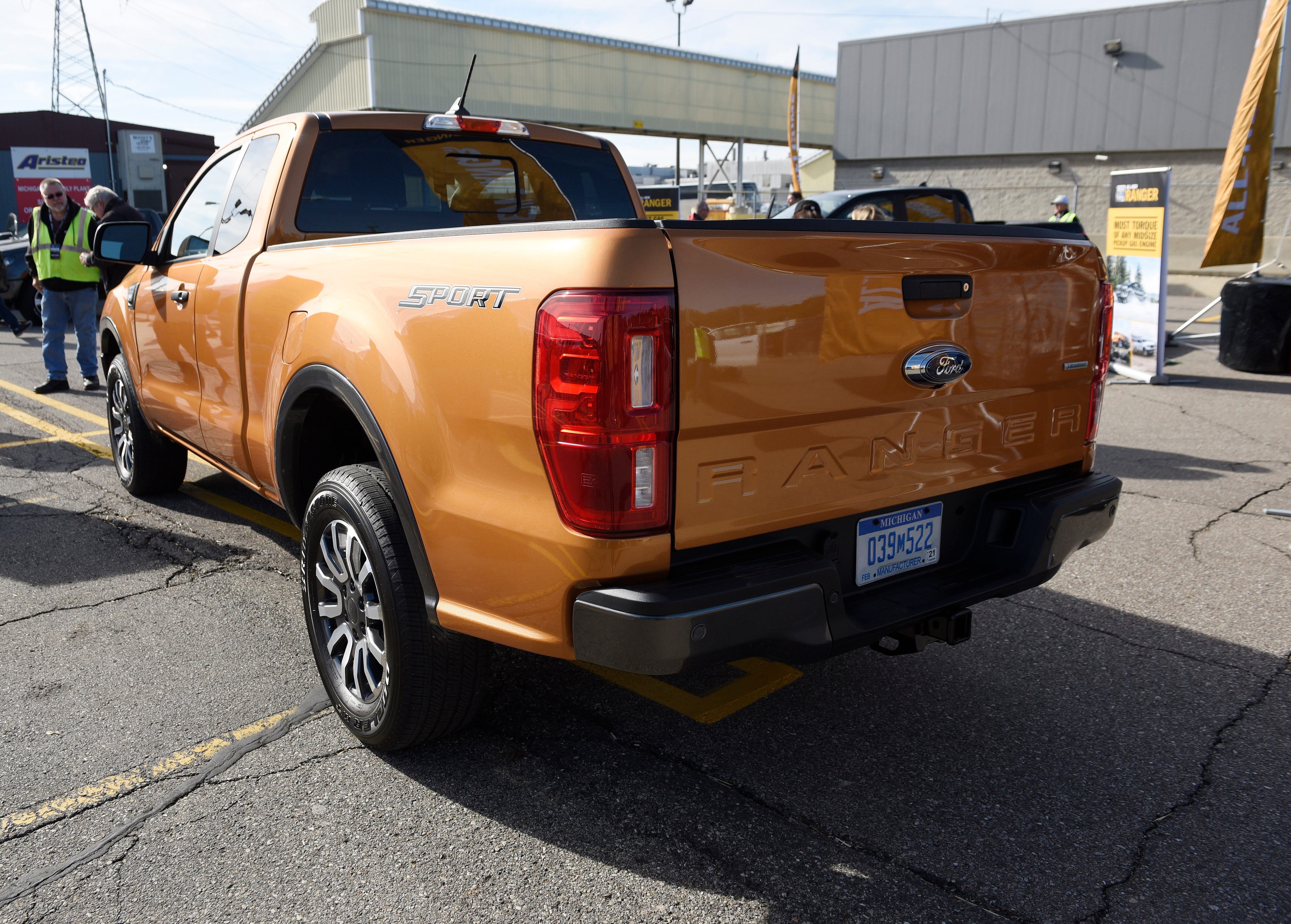Ford faces class action lawsuit over mpg ratings

A class-action lawsuit filed Monday in U.S. District Court alleges Ford Motor Co. installed devices on 2019 Ford Ranger pickups that misrepresent fuel economy, and that the automaker deceptively advertised the truck's fuel efficiency.
The lawsuit was filed less than two weeks after Ford disclosed in a regulatory filing with the Securities and Exchange Commission that the Department of Justice had opened a criminal investigation into Ford's emissions certifications processes. In February, the automaker said it had opened an internal investigation to check whether faulty computer modeling had caused the automaker to misstate fuel economy estimates for some vehicles.
"Ford deceptively advertised its Rangers to consumers as ‘best-in-class’ in fuel economy," said Steve Berman, managing partner of Hagens Berman, one of the firms that filed the lawsuit, in a statement. "Ford knew that consumers pay a premium for fuel efficiency and that less fuel burned means less emissions, and therefore more profits. Its own employees questioned its fuel efficiency calculations. Ford chose to blatantly ignore the clear warning signs it was given."
As of Tuesday afternoon, Ford officials had not been served the complaint. "When we are," Jennifer Flake, a Ford spokesperson said in an e-mail, "we’ll review it and respond appropriately."
Ford notified the Environmental Protection Agency in February that it had hired an outside firm to investigate the vehicle "road load" specifications used in the company's testing and applications for emissions and fuel economy standards. The automaker said then that the investigation had determined the company did not use any "defeat devices" on its vehicles to fool emissions tests.
Road load is essentially the force put on a vehicle while driving at a constant speed over a level surface. A lighter load in the mathematical equation could result in better fuel economy than stated.
The automaker said in February that the investigation is first looking at the 2019 Ranger, which currently boasts a best-in-class EPA-estimated 23-miles-per-gallon combined fuel economy. Ford has had problems with emission testing before. The Dearborn company was forced to lower the fuel economy ratings of six models and pay compensation to drivers in 2014.
Berman and Robert Hilliard, a Texas-based attorney, allege in the lawsuit filed in the U.S. District Court for the Eastern District of Michigan that the Ford F-150 and other Ford vehicles could also be affected by the alleged emissions miscalculations.
The lawsuit filed Monday on behalf of Texas resident and 2019 Ranger owner Marshall Lloyd and "on behalf of all others similarly situated" alleges Ford deliberately miscalculated road testing factors during its internal fuel economy test process "in order to report that its vehicles were more efficient than they actually were."
Ford then used the higher fuel economy as a "selling tool," according to the lawsuit. Lloyd purchased his 2019 Ranger "on or about" Feb. 20, just a day before Ford publicly announced it was investigating the vehicle's fuel economy.
The lawsuit cites multiple blogs that claimed to find the Ranger's fuel economy was not close to the EPA rating. Berman and Hilliard also allege that Ford programmed the vehicle's computers "with a mileage cheat device to continue to lie about the vehicle's fuel economy in order to continually conceal the misrepresentation."
"There is no question that Ford used the fuel efficiency ratings as a sales tool to entice consumers into purchasing the 2019 Ford Ranger," Berman and Hilliard allege in the lawsuit. "By cheating in the certification testing, and providing a mileage cheat device in the vehicles, Ford made its Ranger trucks more appealing and competitive in the marketplace, to the point of being named 'best in class' and driving up sales and profits."
Hagens Berman was the first firm in the U.S. to file suit against Volkswagen AG for its diesel emissions-cheating scandal. The firm bills itself as "no stranger" to emissions cheating.
The attorneys allege violations of trade practices throughout the U.S., a breach of express warranty, fraud, negligent misrepresentation, and unjust enrichment as a result of the allegations. They're requesting financial relief for the class, and a jury trial if applicable.
Emissions-tests cheating has been an issue for large automakers in recent years, most notably Volkswagen AG. Last May, former Volkswagen AG CEO Martin Winterkorn was indicted on federal conspiracy charges to defraud the United States, to commit wire fraud and to violate the Clean Air Act for his alleged role in "Dieselgate."
Volkswagen admitted to cheating U.S. diesel emissions tests by using defeat devices. Those devices caused pollution-control systems to work properly when being tested on dynamometers, but turned off those systems on the open road.
In January, Fiat Chrysler Automobiles was required to pay about $800 million to settle allegations from federal regulators that the company used software on about 104,000 diesel-powered pickups and SUVs that's similar to “defeat devices” used by VW to cheat U.S. emissions-testing.
The government said then the stiff penalties were intended as a warning to other "bad actors" that might be tempted to violate laws protecting the environment and health. Fiat Chrysler was not required to admit wrongdoing as part of the settlement.
Twitter: @Ian_Thibodeau
ithibodeau@detroitnews.com